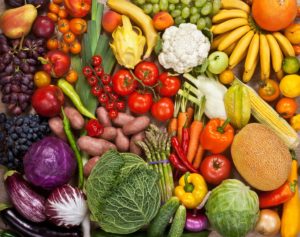 Nutrition vs Pharmaceuticals: A Fresh Look at Treatment
Nutrition vs Pharmaceuticals: A Fresh Look at Treatment
Can we honestly suggest that nutrition be a “prescription” over stimulants and other pharmaceuticals as a primary form of treatment for addiction and mental health?
Let us do a quick review of our historical approach to mental and behavioral health treatment.
Prior to the 1990’s, when we discussed the most effective treatment for those suffering from mental illnesses or addiction, the conversations invariably revolved around a combination of medication and counseling.
Then, in the early 90’s, a dual phenomenon occurred in our healthcare system – the dramatic increase in prescription drugs for mental health and addiction treatment, and the advent of mainline pharmaceutical advertising on television. Our culture began to seemingly address many of our aliments with a prescription. Ritalin production from 1990 to 2000 increased 846%[1], and prescriptions for Ritalin and amphetamines, primarily Adderall, increased 500% during the decade[2]. In the late 90’s, the United Nations published a report noting the U.S. prescribed 85% of the world’s Ritalin.
Couple the explosion in stimulant prescriptions with the ever-increasing television advertising of pharmaceuticals – unleashed after a change in advertising rules in the mid 90’s – to address both physical and mental health concerns. Health solutions in the treatment industry, already with a penchant for prescriptions, solidified its heavy influence of medication as a frequently-used primary tool, and counseling as a foundational corollary.
Fast forward to today. Studies around the world are noting the counter-productive effects of long-term prescription use to treat behavioral and mental health. While short-term use may indeed be the most effective tool to achieve balance and stabilize a client, long-term use is proving to have a net negative long-term effect.[3]
Have we been missing the correct approach to mental wellness all along? Has our approach to mental and behavioral well-being essentially been upside down, using medication first instead of using it sparingly and after we have incorporated a lifestyle change that incorporates a healthy mind, body and spirit?
Dr. Julia J. Rucklidge, professor of clinical psychology at the University of Canterbury in Christchurch, New Zealand, has completed compelling studies using micronutrients — vitamins and minerals in small quantities — to treat depression and other serious mood disorders. She has been out front among a growing number of healthcare professionals who are using a combination of their clinical expertise and a nutrient-rich diet to help treat those struggling with mental health concerns. Their studies are showing notably better long-term results with this approach compared to long-term use of medications.[4]
What nutrients are being most mentioned? Magnesium supports brain function. Health benefits from omega fatty acids are  well-documented. Leafy greens are essential for supporting red blood cell production and helping nerve function. Deficiencies of folate, a key derivative from leafy greens and legumes, can contribute to depression, apathy, fatigue, poor sleep, and poor concentration.
well-documented. Leafy greens are essential for supporting red blood cell production and helping nerve function. Deficiencies of folate, a key derivative from leafy greens and legumes, can contribute to depression, apathy, fatigue, poor sleep, and poor concentration.
For ongoing energy, it is important to provide Vitamin B-6, B-12 and other natural sources. Fruits are generally good sources of B-6, and fish is generally a good source of B-12.
These natural foods are certainly not an exhaustive list. But, the point is that nutrition needs to be a critical element as we address mental health and addictive behaviors in clients.
My professional background is in addiction treatment. Do I believe that diet alone will help someone overcome an addiction? No. Indeed, our clinical and pastoral staff does use therapeutic, medical and spirtitual approaches to help stabilize our clients and balance their system when it has become deficient or, in some instances, unstable.
But can a plant-based, nutrient-rich diet, with supplemental omegas and vitamins from sources such as fish, be a critical component that strengthens the physical and mental well-being of a client, helping them overcome their addiction or maintain their recovery and avoiding relapse? Absolutely.
Can it help them maintain alertness, focus, keep an elevated mood and produce lasting energy for their body, all essential elements for anyone – especially recovering addicts – to lead a healthy life? I believe there is no doubt.
The empowering news is that a healthy diet is something we can all control. We do not need therapy to make wise and balanced food choices. If you have been under a prescription for a long period of time to help with your mental health or addiction, consider discussing nutritional components with your healthcare provider.
If you do not know what foods are essential for your overall nutrition and well-being, ask your doctor and conduct your own research. It is time well invested. You mental health, physical health and overall wellness will feel the benefits.
Robert Shyroc is the Director of Admissions and Development at Covenant Hills Treatment Center in Orange County, California and Boerne, Texas. Covenant Hills provides men’s and women’s drug and alcohol rehab treatment programs based on Christian and Traditional 12-Step programs. For over 20 years, Covenant Hills has treated thousands for substance abuse and addiction utilizing a whole person care in its treatment approach.
[1] http://www.pbs.org/wgbh/pages/frontline/shows/medicating/drugs/stats.html
[2] http://www.pbs.org/wgbh/pages/frontline/shows/medicating/drugs/stats.html
[3] https://youtu.be/3dqXHHCc5lA. The surprisingly dramatic role of nutrition in mental health | Julia Rucklidge | TEDxChristchurch
[4] https://youtu.be/3dqXHHCc5lA. The surprisingly dramatic role of nutrition in mental health | Julia Rucklidge | TEDxChristchurch








